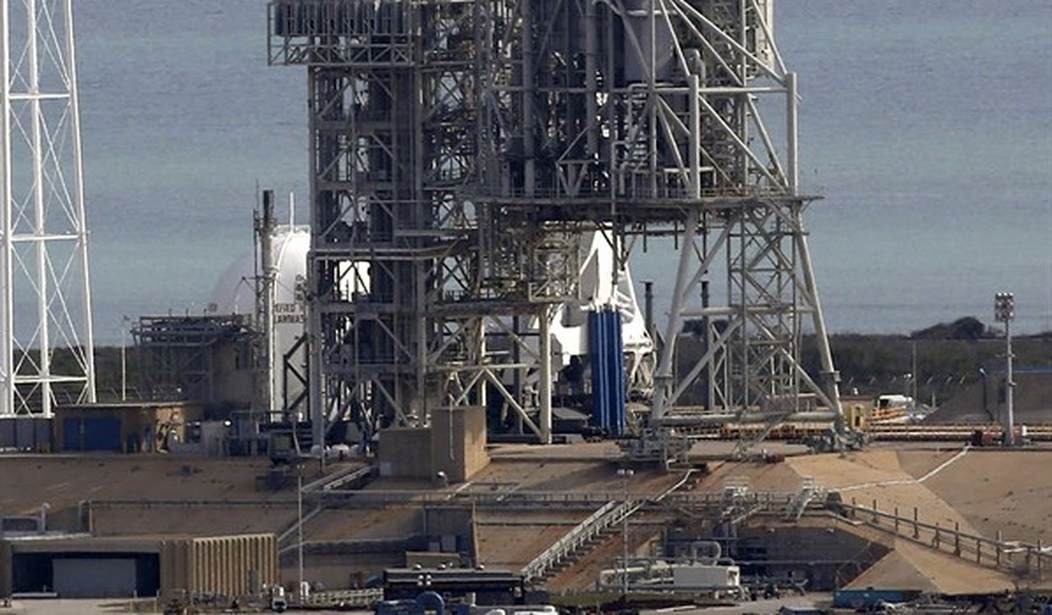Tomorrow, if the weather holds, the first private, commercial manned spaceflight will become a reality as Elon Musk’s Space X Dragon capsule blasts off from Cape Canaveral, marking the first time in nearly 9 years that Americans will go into space launched from U.S. soil.
NASA is paying for the ride. And they underwrote much of the Dragon crew capsule’s development.
But the driving force behind the project was PayPal founder Elon Musk — a quirky billionaire who wants to establish a human colony on Mars.
Keep dreaming, Elon, and if the past is any indication, you’ll get there.
The rocket that launches the Dragon into orbit is an incredible piece of engineering. The Falcon 9 will lift the capsule into orbit and then, instead of falling back to earth and crash landing in the water, it will be guided by rockets to a pinpoint soft landing on a small landing area floating in the ocean. The reusable first stage will shave millions off the cost of launching humans into space.
But the audacity of Musk’s dream is that he put his money where his fantasies are. At least $100 million of his own money has been poured into the project with no prospect of a decent return any time soon.
Remember when the United States was full of men and women like this? When John F. Kennedy said the U.S. should go to the moon, NASA saluted and said when do you want to leave? Of course, it helped that NASA had almost unlimited funds to get the project off the ground. But the innovation to even build the hardware and invent the software to get us to the moon and back took a positive mental attitude and a can-do spirit that the agency, sadly, has lost.
There are still dreamers at NASA. But their dreams involve robot explorers taking us on a vicarious journey to exotic worlds, not humans setting foot on other planets.
So today, we have to look at entrepreneurs like Elon Musk, Blue Origin’s Jeff Bezos, and Richard Branson’s Virgin Galactic to find the kinds of risk takers that are willing to bet large sums of their personal fortunes on human spaceflight. Their chances of failure are great. Even Musk may see his dream go up in smoke as the Dragon rocket has a clouded past.
But the point is, that they’re trying. And you have to wonder how much longer we’d have to wait for NASA to get people into space again. The 2016 date for the launch of people into space flying in a NASA-built craft has been pushed back again and again. The Orion spacecraft may some day get to the moon, but it has to get off the ground first. And that won’t happen until at least 2024.
So what happened to NASA? Part of the problem is that it’s horrendously expensive to send people into space and, with a limited budget, NASA decided to send robots out into the void. In truth, they have performed magnificently, expanding our knowledge of the universe immeasurably. But nearly 51 years after we walked on the moon, we’re still stuck here on earth, orbiting a paltry 200 miles above our home planet.
What’s needed is the same attitude that drove people to cross an ocean and come to a new land to improve their lives. Could you see Michael Moore, or Joe Biden, or anyone on the left for that matter, leaving it all behind and taking a life-changing risk to leave home for a new world? The question answers itself.
We are going to lose astronauts to horrible accidents or even more horrible mistakes. It’s remarkable that we only lost 2 space shuttles and 14 brave souls while flying. The question will be what will government do?
How many steamboat boiler explosions were there? Or train derailments? How many people died crossing the continent to California, Oregon, or the great southwest? They didn’t put all the steamboats in dry dock until a better boiler was invented. They didn’t keep the trains from rolling until locomotives were safer.
So it’s entirely relevant to ask what happens if the worst happens tomorrow? Will government shut down private efforts at human space flight for another 20 years? Playing it safe is all the rage these days, as evidenced by the fear generated by governments over reopening the economy. Their not cowards as much as they are overly cautious.
It goes without saying that “cautious” never stopped the bold, the dreamers, the risk takers. But it’s an open question whether timidity will end the dreams of people like Elon Musk and leave the commercial exploitation of space to the Russians and the Chinese.










Join the conversation as a VIP Member